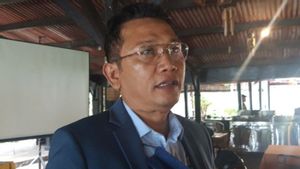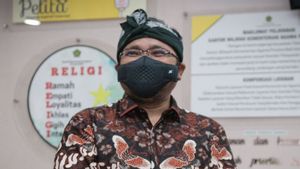JAKARTA - Former Director of Infectious Diseases WHO Southeast Asia Prof. Tjandra Yoga Aditama said that the virus that causes COVID-19 will always exist and continue to mutate into other variants in the future.
"Before the COVID-19 pandemic, previously there was an H1N1 influenza pandemic. The pandemic has ended but the virus is still in the community. From 2010 to 2022, the H1N1 virus is still there. And that can also happen to COVID-19," Tjandra said in a statement in the webinar as launched by Antara, Thursday, February 24.
Mutations will cause the virus to become more adaptable to the surrounding environment so that the transmission rate becomes faster. This happened to the Omicron and Delta variants.
Therefore, Tjandra said, COVID-19 must remain vigilant even though the number of deaths due to Omicron is lower than the Delta variant and the symptoms caused are not as severe as the previous variant.
For information, the COVID-19 death rate in the Delta variant wave can reach 2,500 per day, while in the Omicron variant, the death rate is much lower at 180.
"Even though the death toll is lower, there are still fatalities. Of course, we have to realize that people who die are not just numbers, one life is valuable," said Tjandra, who currently also serves as Director of Postgraduate Program at YARSI University.
VOIR éGALEMENT:
For that reason, according to Tjandra, there needs to be maximum efforts from the government to issue policies that are adaptive to the situation and take into account the suggestions of experts so that they can control the rate of transmission.
"We strongly agree that the hospital occupancy rate is also much lower now. As long as it is low, what if people who have mild symptoms but have the potential to become severe symptoms are hospitalized." Tjandra suggested.
"But if the occupancy rate is already high, then, of course, it can be reviewed," he continued.
In addition, Tjandra also said that there needs to be vigilance to deal with the possibility of another pandemic in the future.
"If the pandemic improves later, vigilance must still be maintained. Either to deal with COVID-19 or to deal with the possibility of the next pandemic," said Tjandra.
The English, Chinese, Japanese, Arabic, and French versions are automatically generated by the AI. So there may still be inaccuracies in translating, please always see Indonesian as our main language. (system supported by DigitalSiber.id)













